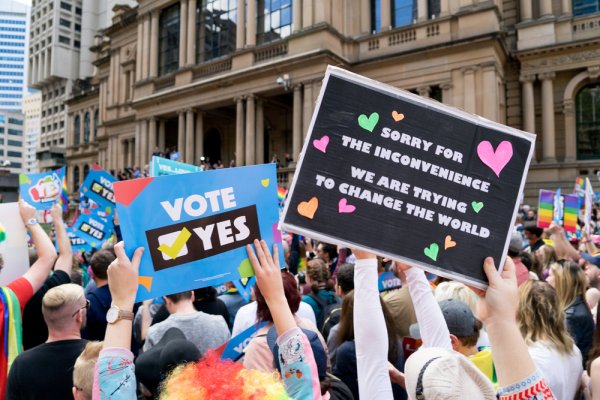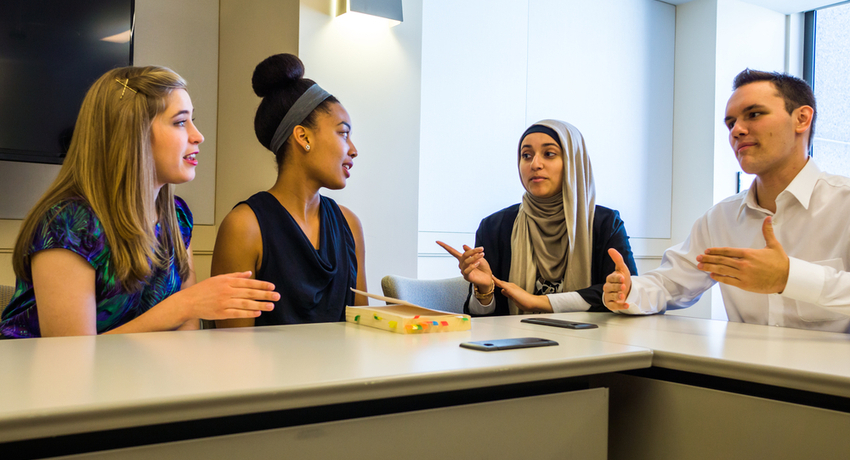Ireland has successfully used Citizens’ Assemblies to tackle various contentious policy issues from marriage equality to the abortion referendum. Right now, they are assembling one to debate gender equality. Could Citizens’ Assemblies work in Australia and be a permanent part of our democratic processes?
When it comes to these big deliberative forums, context is key. In the case of Ireland, as well as other countries that have successfully institutionalised Citizens’ Assemblies, like Belgium, it typically happens in the context of crisis. In a way the Citizens’ Assemblies are responses to political deadlocks expressed in either in the failing to form a government as was the case in Belgium, or the deadlocks in abortion and same-sex marriage debates in Ireland. These are a mechanism to break that deadlock.
To say that they will work in Australia demands a broader context that calls for these innovations. You can’t just directly transplant them because it worked elsewhere. I think Australia is waiting for that political moment for people to clamour for that space where we can resolve our differences in a slow, reflective and an engaging manner.

Gender equality progress has been glacial in Australia. Would that qualify as a crisis moment? And what can Citizens’ Assemblies offer in this context?
We have to understand that when Ireland called for this gender equality Citizens’ Assembly, it’s building on that history of being successful in previous Citizen’s Assemblies – the changing of the constitution for same sex marriage and abortion. In a way it’s more of a continuation rather than that moment of crisis. What they can offer in this context is to reframe the conversation. So when we talk about sexist practices in Australia, gender inequality in the workplace, it can easily deteriorate to name calling and sexist and hurtful comments.
What sets Citizens’ Assemblies apart is that you get a randomly selected group of people who look like the entire population to represent the diversity of views. But what’s also distinct here is that we can oversample disadvantaged groups as part of that process, so in a way there’s a justice component there in that we try to listen to voices that are not always part of the conversation.
In addition, we may be surprised that Australia is not that divided when we start thinking about our commonalities when it comes to the issues of gender. Perhaps these differences can be overstated by the nature of media coverage or by the nature of social media conversations but once we actually create the space where people can map their similarities and precisely identify where differences lie, then we can have a better sense of where the country is when it comes to this issue
So do you think that something like sexism in politics is more blown out in the media than it is in practice?
Oh no, not necessarily. We have clear indicators that there is definitely underrepresentation of women, we have clear data that there’s a big gender pay gap when it comes to top positions, these are facts. But what Citizens’ Assemblies can bring to the table are recommendation based on not just facts, but based on values. And I think that’s the difference. If we just leave the discussion of values in the wild conversations taking place in social media, then we don’t have that meaningful engagement because it’s so easy to dismiss each other.
For example one of the most moving parts for me during the abortion debate in the Irish Citizens’ Assembly was when in the plenary sessions everyone – both people who are for and against abortion – were made to listen to an audio recording of a woman talking about her experience; why she had to have an abortion, why she had to travel out of the country to have that abortion. It was just an audio file, but imagine a very quiet room, listening to that story.
There’s something about people coming from diverse backgrounds, being together in the same physical space, listening to a moving story that allows us to reflect on our views
We can of course hear these stories all the time on television or on social media and therefore take them for granted, but there’s something about people coming from diverse backgrounds, being together in the same physical space, listening to a moving story that allows us to reflect on our views. And I think the same can be said about gender issues – we can create a space where people can physically come together, be accountable to each other, listen to each other, and have a shared understanding of what’s at stake here.

Belgium has successfully institutionalised Citizens’ Assemblies. Could Australia do the same?
What is needed to organise one in Australia? Who needs to be involved?
What’s really important when thinking about Citizens’ Assemblies is to recognise realpolitik. Advocates of deliberative democracy, like the Centre for Deliberative Democracy and Global Governance where I work, are sometimes accused of being too naïve about politics. Isn’t politics about power, about parties winning elections, about people securing their interests – and we recognise all that.
And in fact, if we look at the context of Ireland or even in Belgium, these Citizens’ Assemblies happened because politicians backed them up – because they realised that it’s actually good for them. In Belgium for example, in the German speaking part, one of the main motivations for politicians to support this was the legacy and the contributions they wanted to make before they retire from politics. In Ireland it happened because the government in power was supportive and they realised that this is something they have to do to break the deadlock.
For democratic innovations to take root in Australia, whoever is convening it must really make sure that people will not misinterpret this as another process that already has predetermined outcomes and politicians are just using it to just reinforce what they’ve already decided previously.
We must also not discount the fact that this costs big money, so one of the key components here is to secure a funder that is neutral when it comes to these issues, that people can trust. For democratic innovations to take root in Australia, whoever is convening it must really make sure that people will not misinterpret this as another process that already has predetermined outcomes and politicians are just using it to just reinforce what they’ve already decided previously.
Citizens’ Assemblies have no statutory bearing. How can we make sure they impact the policy process?
One model is to use the Citizens’ Assembly as one among many sources of information. In other words, it’s not supposed to make the decisions on behalf of the broader public. So what happens for example is that you run the process and it will have extensive media coverage, and every day ordinary citizens will find out what happened in the Citizens’ Assembly and hopefully whatever recommendations they will come up with will feed into their decisions when for example they vote in the referendum.
There has to be a way to engage the recommendations of the Citizens’ Assembly whether it is through a referendum or in the parliamentary debate, but the point to underscore here is that this all happens in the context of representative democracy. We’re not saying that we will replace politicians with ordinary randomly selected citizens to make decisions. The key here is how we link the outcomes of the Citizens’ Assembly to the discussion in the broader public.




